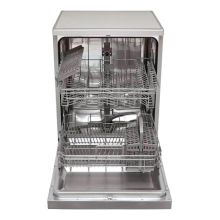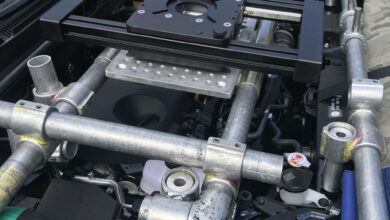The Environmental Impact of a Faulty Trash Compactor and How Atlanta Repairs Can Help

Trash compactors are designed to reduce the volume of waste, making it easier to manage and dispose of. By compressing trash into smaller, more manageable bundles, helps decrease the frequency of waste disposal trips and reduce the overall waste footprint. However, when a trash compactor is malfunctioning, it can have a significant negative impact on both waste management efficiency and the environment. Understanding these impacts and how trash compactor repair in Atlanta can help is crucial for both homeowners and businesses committed to sustainability. Environmental Impact.
How a Faulty Trash Compactor Affects Waste Management and the Environment
- Increased Waste Volume
- The Issue: A malfunctioning trash compactor may fail to compress waste effectively, leading to larger, bulkier trash. This inefficiency can result in more frequent trash collection trips and the use of additional trash bags, which increases the overall volume of waste.
- Environmental Impact: Increased waste volume means more trash ends up in landfills, contributing to landfill overfill and the associated environmental problems. Additionally, more frequent trips to dispose of trash contribute to higher carbon emissions due to increased transportation.
- Inefficient Waste Segregation
- The Issue: A trash compactor that isn’t working correctly may lead to improper waste segregation, especially if it fails to differentiate between recyclable and non-recyclable materials.
- Environmental Impact: Inefficient segregation means that more recyclable materials may end up in landfills instead of being properly recycled. This not only wastes valuable resources but also increases the environmental burden associated with raw material extraction and production.
- Increased Energy Consumption
- The Issue: If your trash compactor is malfunctioning, it may consume more energy than necessary to perform its functions. For example, a compactor with a faulty motor might run longer than needed, wasting electricity.
- Environmental Impact: The additional energy required by a malfunctioning compactor can also lead to increased electricity bills, further compounding the environmental and financial impact.
How Atlanta Repairs Can Mitigate These Issues
- Restoring Compaction Efficiency
- The Solution: Professional trash compactor repair in Atlanta can restore your trash compactor to its full functionality, ensuring that waste is compressed efficiently. This reduces the overall volume of trash, decreasing the frequency of disposal and the associated environmental impact.
- Improving Waste Segregation
- The Solution: A well-maintained trash compactor ensures that waste is correctly sorted and compacted, facilitating better recycling practices. This helps to keep recyclable materials out of landfills, contributing to a more sustainable waste management process.
- Reducing Energy Consumption
- The Solution: By repairing faulty motors or electrical components, a professional repair service can reduce the energy consumption of your trash compactor. This not only lowers your electricity bills but also minimizes your carbon footprint, contributing to a more environmentally friendly household.
- Preventing Leaks and Contamination
- The Solution: Repairing or replacing seals, gaskets, and other components ensures that your trash compactor securely contains waste, preventing leaks and reducing the risk of environmental contamination.
- Extending Appliance Lifespan
- The Solution: Regular maintenance and timely repairs can significantly extend the life of your trash compactor, reducing the need for premature replacement. This helps decrease the environmental impact associated with manufacturing new appliances and disposing of old ones.
Conclusion
A malfunctioning trash compactor may seem like a minor inconvenience, but its environmental impact can be significant. By addressing issues promptly through trash compactor repair in Atlanta, you not only improve your waste management practices but also contribute to a more sustainable environment. Regular maintenance and professional repairs are key to ensuring that your trash compactor operates efficiently, helping you reduce waste, conserve energy, and minimize your environmental footprint.
FAQs
- How does a faulty trash compactor increase environmental waste?
- A faulty compactor may fail to compress trash effectively, leading to increased waste volume and more frequent disposal trips, contributing to landfill overfill and higher carbon emissions.
- Can repairing my trash compactor really make a difference in energy consumption?
- Yes, repairing faulty motors and electrical components can reduce the energy consumption of your trash compactor, lowering your carbon footprint and electricity bills.
- What are the environmental risks of not repairing a leaking trash compactor?
- A leaking trash compactor can lead to soil and water contamination, posing risks to local ecosystems and potentially affecting human health through the spread of pollutants.



